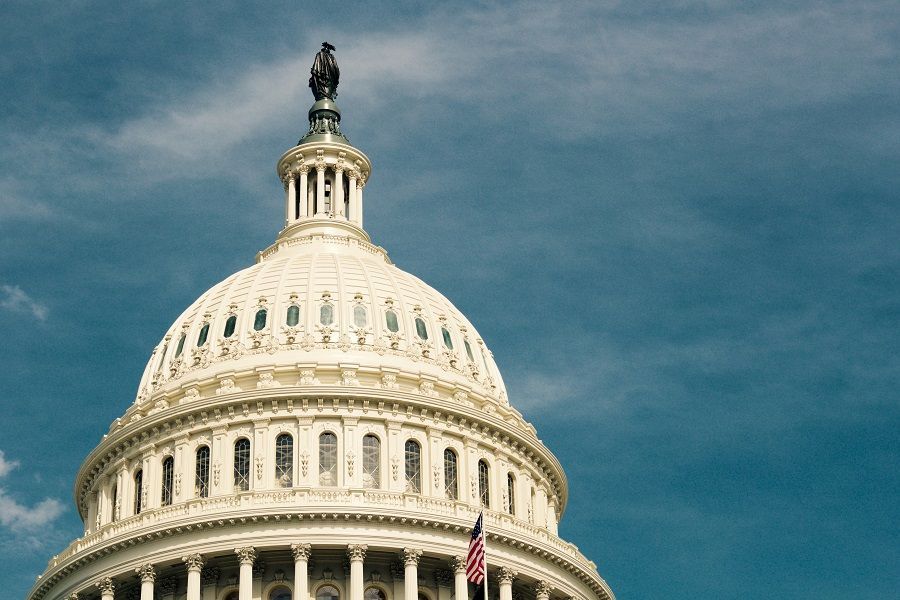Newsletter

The federal law enacted last week provides some tax relief for employees who work overtime, and for those who receive tips. A summary is set forth below: Overtime Deduction An employee must receive OT pay as defined by the Fair Labor Standards Act (FLSA) (pay for hours worked beyond 40 in a workweek at a premium rate), and the deduction only applies to the premium portion of OT pay (the amount above the regular hourly rate). The deduction applies only to overtime compensation that is “required” under the FLSA. The deduction does not apply to overtime premiums that are not “required” by the FLSA, but instead are paid pursuant to contract (including a collective bargaining agreement), company policy, or because they are required under state law only. This is an above-the-line deduction, with the maximum deduction being $12,500 per year (up to $25,000 if married filing jointly). To be eligible for the full deduction, employees must earn $150,000 or less. Employers must include the total amount of qualified overtime compensation as a separate line item on the Form W-2. This will require employers to keep a distinct record of the overtime premium compensation that is both (a) required under the FLSA and (b) in excess of the regular rate. Tips Deduction To qualify for the deduction, the tips must be received by an individual engaged in an occupation that customarily and regularly received tips on or before Dec. 31, 2024, such as servers, bartenders, hotel staff, hairstylists, etc. To be considered a “qualified tip,” the amount must: (a) be paid voluntarily without any consequence in the event of nonpayment; (b) not be the subject of negotiation; and (c) be determined by the payor. Thus, for example, a mandatory service charge imposed by the employer for a banquet will not qualify for the deduction, and neither will a required gratuity that a restaurant adds automatically to a bill for large parties. Failing to make this distinction may lead employees to claim deductions to which they are not entitled. This is also an above-the-line deduction, with a cap of $25,000 per year. To be eligible for the full deduction, employees must earn $150,000 or less. The act requires employers to include on Form W-2 the total amount of cash tips reported by the employee, as well as the employee’s qualifying occupation. For 2025, the act authorizes the reporting party to “approximate” the amount designated as cash tips pursuant to a “reasonable method” to be specified in a forthcoming regulation by the Treasury secretary.

The FMLA contains specific provisions allowing eligible employees to take leave “to care for the employee's spouse, son, daughter, or parent with a serious health condition.” In December, the 6th Circuit Court of Appeals, which is the Federal Appellate Court for the above states, issued an opinion finding that an employee might be entitled to take FMLA leave to care for her sick sister. The language of the FMLA is crystal clear as to family members for which an employee may take FMLA leave to care for. Notwithstanding that, the court found that the in loco parentis (in the place of a parent) language in the FMLA’s definition of ‘Parent” and “Son or Daughter” showed that “Congress sought to protect parental relationships, whether biological, legal, or their functional equivalents.” So, the court sent the case back to the lower court to determine whether the employee in question had an “in loco parentis” relationship with her sister. If so, the employee would be entitled to FMLA leave to care for the sister. This nonsensical interpretation of the FMLA by court leaves employers in the above states with great uncertainty as to what to do if an employee requests FMLA leave to care for a sibling. Under the court’s skewed reasoning, the employer would have to determine whether an employee requesting such leave actually stood in loco parentis with the sibling. An employer facing such a request should consult with an HR or legal professional.

Kentucky, located in the southeastern United States, is a state renowned for its breathtaking mountainous landscapes, rich equestrian traditions, and the world-famous bourbon industry. Known affectionately as the "Horse State," Kentucky boasts a unique culture that harmoniously blends music, history, and timeless traditions. Key Facts About Kentucky Population : Approximately 4.5 million people (2023) Official Language : English Land Area : 104,659 km² Currency : United States Dollar (USD) 10 Fun Facts About Kentucky The Kentucky Derby : Held annually in Louisville, the Kentucky Derby is one of the most prestigious horse races in the world, attracting spectators from across the globe. The Birthplace of Bourbon : With about 95% of the world's bourbon produced here, Kentucky is undeniably the epicenter of this iconic spirit. Mammoth Cave National Park : Kentucky is home to Mammoth Cave, the longest-known cave system in the world, featuring over 426 miles (686 km) of explored underground passages. Horse Capital of the World : Lexington, a vibrant city in Kentucky, is celebrated for its purebred horse breeding industry. The Appalachian Mountains : Eastern Kentucky offers stunning views of the Appalachian Mountains, making it a prime destination for hiking and outdoor adventures. Country Music Roots : Kentucky has given the world legendary country music icons, including Loretta Lynn and Bill Monroe, often referred to as the "Father of Bluegrass." The Big Red Horse Sculpture : This iconic landmark in Lexington celebrates Kentucky's equestrian legacy and is a must-see for visitors. Role in the Civil War : Due to its strategic location, Kentucky played a pivotal role during the American Civil War, serving as a border state with divided loyalties. Kentucky Fried Chicken : The globally recognized fast-food chain KFC was founded in Corbin, Kentucky, by Colonel Harland Sanders. The Kentucky Horse Park : This unique museum showcases the history of horses and their cultural and military significance, making it a paradise for horse enthusiasts. A State of Heritage and Beauty Kentucky’s allure lies in its ability to combine the charm of its natural landscapes with its cultural and historical significance. From the rolling hills of the Bluegrass region to the majestic Appalachian Mountains, Kentucky offers scenic beauty at every turn. The state’s thriving equestrian culture and bourbon industry reflect a rich heritage, while its contributions to music and art continue to shape its unique identity. Whether you’re exploring the depths of Mammoth Cave, cheering on horses at the Kentucky Derby, or savoring a glass of world-class bourbon, Kentucky promises an experience like no other. It is a proud and distinctive part of the United States, offering something special for everyone to discover.

The President made two appointments on his first day in office that will level the playing field for Employers: He named Andrea Lucas to be the Acting Chair of the EEOC. Ms. Lucas has been an EEOC Commissioner since being nominated by President Trump in 2020. Upon her recent appointment she stated “I look forward to restoring evenhanded enforcement of employment civil rights laws for all Americans. In recent years, this agency has remained silent in the face of multiple forms of widespread, overt discrimination. Consistent with the President’s Executive Orders and priorities, my priorities will include rooting out unlawful DEI-motivated race and sex discrimination; protecting American workers from anti-American national origin discrimination; defending the biological and binary reality of sex and related rights, including women’s rights to single sex spaces at work; protecting workers from religious bias and harassment, including antisemitism; and remedying other areas of recent under-enforcement.” The President also named Marvin Kaplan as the Chairman of the NLRB. Mr. Kaplan has served on the Board since 2017. The President should have the opportunity to appoint two more pro-employer Board Members soon, resulting in a Republican majority, and will also surely replace the radical NLRB General Counsel very soon. This will allow the Board to undue the controversial pro-union positions and decisions delivered under the previous Administration.

As everyone is probably aware from the news media, Kentucky’s Medical Cannabis Program law takes effect January 1, 2025. Under the law, individuals with qualifying medical conditions may be prescribed cannabis by medical cannabis practitioners. Such individuals will receive a state issued identification card and are referred to as “cardholders” in the new law. The good news for employers is that the new law really does not appear to change much, if anything, with regard to having a drug free workplace, and a policy for drug testing. The law specifically states that it does not require an employer to permit or accommodate the use, consumption, or possession of medicinal cannabis in the workplace. Further, the law provides that an employer may have policies restricting the use of medicinal cannabis by employees, including zero-tolerance drug policies. The law does contain some language with respect to reasonable suspicion of impairment situations. It says that “Good faith determinations of impairment permitted under this paragraph shall include behavioral assessments of impairment and a secondary step of testing an employee who is a cardholder for the presence of cannabis by an established method.” A bit unclear, but the purpose of this provision would seem to be to require employers to perform a drug test, and not just rely on an employee’s behavior to determine impairment. This is in accord with a well written drug policy. We would recommend documenting in detail the observations of a supervisor that indicate impairment, as well as the drug test results.

On Nov. 15, 2024, a Federal District Court in Texas blocked on a nation-wide basis the latest effort by the U.S. Department of Labor (DOL) to increase the minimum salary executive, administrative, and professional employees must receive before they can be properly classified as exempt from overtime under the Fair Labor Standards Act (FLSA). The minimum would have increased to $59,000 on January 1. The Judge held that the rule “plainly exceeds” the DOL’s authority.
The DOL could choose to appeal the Judge’s decision to the U.S. Court of Appeals for the Fifth Circuit, but it would be well into 2025 before any such appeal would be decided. It is also likely that the incoming Trump administration will reverse or substantially revise the rule.
The ruling also found that the increase in the salary threshold to $44,000, which occurred on July 1, exceeded the DOL’s authority, so the required amount has actually reverted back to $35,000.
Employers should continue to monitor this situation.

As most know, in August a Texas federal court struck down the FTC’s proposed regulation banning employment non-competition agreements. However, on October 7, the NLRB’s General Counsel published a Memorandum reiterating, and further explaining, her position that most non-competition agreements violate the National Labor Relations Act, “NLRA.” This is a position that she originally announced in a May 23 Memorandum. She appears to have double-downed on this, possibly because of the FTC ruling. At any rate, employers should be aware that the NLRA applies to most private employers, whether they have a union-organized workplace or not. Additionally, the General Counsel’s Memo states that “stay-or-pay” agreements are generally also illegal under the NLRA. These are any contracts under which an employee must pay their employer if they separate from employment, whether voluntarily or involuntarily, within a certain timeframe. Some examples are: training repayment agreement provisions or educational repayment contracts. If an employer maintains unlawful stay-or-pay provisions or non-compete provisions, the NLRB is going to seek financial “make whole” remedies. In the case of a no-compete, this could include the difference between what the employee makes and what they could have made in another job. The Memo states “an employee must demonstrate that: (1) there was a vacancy available for a job with a better compensation package; (2) they were qualified for the job; and (3) they were discouraged from applying for or accepting the job because of the non-compete provision.” If these criteria are satisfied, the employer must compensate the employee for the difference (in terms of pay or benefits) between what they would have received and what they did receive during the same period. This could also be a remedy for a stay-or-pay agreement. It must be noted that this General Counsel Memo does not have the force of law. However, it does set forth the enforcement position of the NLRA, meaning that NLRB Charges and investigations will likely follow. A court may eventually find that the General Counsel’s position is not in accord with the law, but it would be very expensive for an individual employer to litigate to that point. Employers have 60 days to “cure” existing stay-or-pay provisions by unilaterally altering contract terms to conform to the General Counsel’s demands. Otherwise, they will be subject to prosecution. It appears to us that so altering the agreements would render them pretty much useless. Employers should review any no-competes, or stay-or-pay agreements that they utilize, and determine if such agreements might violate the conditions set forth in the General Counsel’s Memo. If so, a decision will have to be made as to whether to continue to use the agreements. Employers should consult with labor counsel in making the decision whether to continue to use these agreements.

Employers should take note that the EEOC has filed at least 3 lawsuits in the past month related to the Pregnant Workers Fairness Act, PWFA, which took effect in June of last year. We believe these are the initial lawsuits filed by the EEOC, and most likely indicates that this is a new strategic point of emphasis for the EEOC. What are the cases about? In one case, a pregnant employee who worked on an assembly line requested an accommodation that would not require excessive bending or lying on her stomach. The employer placed her on leave without engaging in the interactive discussion process with her, which constituted a forced accommodation according to the lawsuit. In another case, the employer refused to excuse an employee’s absences for pregnancy-related conditions and medical appointments and required her to work mandatory overtime despite knowing that her physician had restricted her from working over forty hours per week during her pregnancy. Because of her pregnancy-related absences, the company assessed attendance points against her and warned that she would be terminated if she acquired another point. As a result, the employee resigned to avoid termination and protect her pregnancy. In the third case, a specialty medical practice did not allow a medical assistant to sit, take breaks, or work part-time as her physician had advised to protect her health and safety during the final trimester of her high-risk pregnancy. Instead, the practice forced her to take unpaid leave and refused to guarantee she would have breaks to express breastmilk. When she would not return to work without those guaranteed breaks, her employment was terminated. What should employers do? They should review their accommodations policies to ensure that that they include requests related to pregnancy, childbirth, and related medical conditions. This may also include creating or revising interactive process paperwork that should be used to review requests for accommodations, and engage in the required interactive process. By doing so, the risk of failing to engage in the interactive process with pregnant employees who are in need of an accommodation can be reduced, and there will be documentation of the process itself. The EEOC has provided examples of possible reasonable accommodations: Frequent breaks; Sitting or standing; Schedule changes, part-time work, and paid and unpaid leave; Telework; Parking; Light duty; Making existing facilities accessible or modifying the work environment; Job restructuring; Temporarily suspending one or more essential function; Acquiring or modifying equipment, uniforms, or devices; and Adjusting or modifying examinations or policies. The analysis to consider whether an accommodation request is an undue hardship is whether it causes significant difficulty or expense for the employer’s operations. Under the PWFA, employers must conduct an individualized assessment when determining whether an accommodation will impose an undue burden. If you believe a request constitutes an undue hardship, you should review the matter thoroughly with your HR advisor.

Yesterday, a Texas federal court struck down the FTC’s proposed ban on non-competition agreements on a nationwide basis , meaning employers will not have to comply with the proposed Rule, and can continue to maintain non-competes as their state laws allow. While there is a slim chance the Rule could be resurrected by a federal appeals court in the future, that is doubtful at best. In case you missed it, here is information regarding the now invalid Rule from our April 24 Newsletter on this topic: The Fair Trade Commission, FTC, issued a final Rule that would have prohibited employers from utilizing non-compete agreements with almost all employees. Specifically, under the Rule, employers would have no longer been able to: Enter into non-compete agreements with employees; or Enforce existing non-compete agreements, unless they are with “Senior Executives,” defined as those earning more than $151,164 annually, with policy making responsibilities. Additionally, before the effective date of the Rule, employers would have been required to provide an explicit Notice to employees and former employees that their non-compete agreements were no longer enforceable.

The Department of Labor, DOL, issued a final rule raising the salary that an employee must be paid to be Exempt from overtime pay, “OT” under the so-called white-collar Exemptions: Executive; Professional; Administrative; and Computer Employees. On July 1, 2024, the minimum salary to qualify for these Exemptions will jump from $684 per week

As you may recall, we sent out an AHEAD Newsletter last May regarding the Pregnant Workers Fairness Act “PWFA,” which went into effect last June 27. As a refresher, the law: Covers employers with 15 or more employees. Protects employees and applicants who have limitations related to pregnancy, childbirth, or related medical conditions.

A recent case from the Eighth Federal Circuit Court raises an issue about a longstanding common practice of some employers use of rounding policies when tracking hours worked by employees. In the case, the employer used an automated timekeeping system which rounded to the next quarter hour when an employee clocked in within 6 minutes of the scheduled shift start time, or out within 6 minutes of the scheduled end time.

The Department of Labor, “DOL,” yesterday (1/9/24) issued a new Rule which will make it more difficult for businesses to classify individuals as Independent Contractors, “IC,” under federal wage and hour law. The new Rule specifically rescinded a Rule that had been in place since 2021, which made it easier for businesses to classify individuals as IC.

The EEOC’s enforcement statistics for 2023 show that the agency filed 143 discrimination lawsuits, an increase of more than 50% from 2022. A recent SHRM article included the following information regarding the suits: 13 of the suits were based on Age Discrimination;
43 of the suits included hostile workplace environment (27 based on sex or sexual orientation and 15 based on race or national origin); and 48 were based on Disability.

If you have not heard, employers probably need to review their rules and policies because of an August 2 decision of the National Labor Relations Board, “NLRB.” Recall that the NLRB enforces the National Labor Relations Act, which applies to almost all private (non-government) employers, whether or not their workplace has been organized by a union.

At the end of last month, the NLRB issued a Rule that will require union elections to be held on the “earliest date practicable” after a Direction of Election is issued. Prior to this, it was at least 20 days following the Direction of an Election. The purpose of this Rule is to make it easier for a union to win an election to obtain the right to represent the employees of an employer. Employers will now have almost no time to educate employees in a campaign against the union. Unions normally lose some support during such campaigns.

In case you missed it, on August 30, 2023, the US Department of Labor (DOL) issued its long-awaited proposed Rule to increase the salary threshold required for employees to be exempt from overtime under the Fair Labor Standards Act (FLSA). To satisfy the requirements for the executive, administrative or professional (EAP) exemption, employees must meet certain tests regarding job duties and generally must be paid on a salary basis in an amount that is at least the amount specified in the DOL regulations.

With some of the other Supreme Court decisions recently handed down, employers may have missed the Groff v. DeJoy case. In Groff, the Court essentially changed the standard for employers when dealing with employee requests for reasonable accommodation for religious beliefs. Unfortunately, they increased the burden for an employer to show that a requested accommodation would be an undue hardship.

On May 31, the General Counsel for the NLRB issued a Memorandum detailing her position that noncompete agreements between an employer and employee generally violate the National Labor Relations Act, “NLRA.” Under Section 7 of the NLRA, employees have the right to engage in protected and concerted activities related to their employment, such as: the right to join a union; and work with coworkers to discuss and attempt to better working conditions.

On February 24, the DOL published a Blog entitled “Research Snapshot: Why More Employers are Voluntarily Recognizing Unions,” in which we think it is fair to say that the DOL takes the position that employers should voluntarily recognize a union if presented with Union Authorization Cards signed by a majority of employees, rather than exercising the statutory right to a secret ballot election. It is far beyond the scope .

The recently enacted 4,155 page Omnibus Spending bill included the Pregnant Workers Fairness Act “PWFA,” which expands workplace protections to pregnant workers, and the Providing Urgent Maternal Protections for Nursing Mothers Act, “PUMP” Act. “PWFA” – Provisions Related To Pregnant Employees: Covers employers with 15 or more employees, and goes into effect June 27.

Federal Trade Commission Issues Proposed Rule to Ban Non-Competes On January 5, the FTC issued a proposed rule which would prohibit employers from entering into non-compete agreements with employees. The rule would also require employers to rescind all existing non-compete agreements and to provide notice to the employee that the non-compete clause is no longer in effect.
Recent Posts

The federal law enacted last week provides some tax relief for employees who work overtime, and for those who receive tips. A summary is set forth below: Overtime Deduction An employee must receive OT pay as defined by the Fair Labor Standards Act (FLSA) (pay for hours worked beyond 40 in a workweek at a premium rate), and the deduction only applies to the premium portion of OT pay (the amount above the regular hourly rate). The deduction applies only to overtime compensation that is “required” under the FLSA. The deduction does not apply to overtime premiums that are not “required” by the FLSA, but instead are paid pursuant to contract (including a collective bargaining agreement), company policy, or because they are required under state law only. This is an above-the-line deduction, with the maximum deduction being $12,500 per year (up to $25,000 if married filing jointly). To be eligible for the full deduction, employees must earn $150,000 or less. Employers must include the total amount of qualified overtime compensation as a separate line item on the Form W-2. This will require employers to keep a distinct record of the overtime premium compensation that is both (a) required under the FLSA and (b) in excess of the regular rate. Tips Deduction To qualify for the deduction, the tips must be received by an individual engaged in an occupation that customarily and regularly received tips on or before Dec. 31, 2024, such as servers, bartenders, hotel staff, hairstylists, etc. To be considered a “qualified tip,” the amount must: (a) be paid voluntarily without any consequence in the event of nonpayment; (b) not be the subject of negotiation; and (c) be determined by the payor. Thus, for example, a mandatory service charge imposed by the employer for a banquet will not qualify for the deduction, and neither will a required gratuity that a restaurant adds automatically to a bill for large parties. Failing to make this distinction may lead employees to claim deductions to which they are not entitled. This is also an above-the-line deduction, with a cap of $25,000 per year. To be eligible for the full deduction, employees must earn $150,000 or less. The act requires employers to include on Form W-2 the total amount of cash tips reported by the employee, as well as the employee’s qualifying occupation. For 2025, the act authorizes the reporting party to “approximate” the amount designated as cash tips pursuant to a “reasonable method” to be specified in a forthcoming regulation by the Treasury secretary.

The FMLA contains specific provisions allowing eligible employees to take leave “to care for the employee's spouse, son, daughter, or parent with a serious health condition.” In December, the 6th Circuit Court of Appeals, which is the Federal Appellate Court for the above states, issued an opinion finding that an employee might be entitled to take FMLA leave to care for her sick sister. The language of the FMLA is crystal clear as to family members for which an employee may take FMLA leave to care for. Notwithstanding that, the court found that the in loco parentis (in the place of a parent) language in the FMLA’s definition of ‘Parent” and “Son or Daughter” showed that “Congress sought to protect parental relationships, whether biological, legal, or their functional equivalents.” So, the court sent the case back to the lower court to determine whether the employee in question had an “in loco parentis” relationship with her sister. If so, the employee would be entitled to FMLA leave to care for the sister. This nonsensical interpretation of the FMLA by court leaves employers in the above states with great uncertainty as to what to do if an employee requests FMLA leave to care for a sibling. Under the court’s skewed reasoning, the employer would have to determine whether an employee requesting such leave actually stood in loco parentis with the sibling. An employer facing such a request should consult with an HR or legal professional.

Kentucky, located in the southeastern United States, is a state renowned for its breathtaking mountainous landscapes, rich equestrian traditions, and the world-famous bourbon industry. Known affectionately as the "Horse State," Kentucky boasts a unique culture that harmoniously blends music, history, and timeless traditions. Key Facts About Kentucky Population : Approximately 4.5 million people (2023) Official Language : English Land Area : 104,659 km² Currency : United States Dollar (USD) 10 Fun Facts About Kentucky The Kentucky Derby : Held annually in Louisville, the Kentucky Derby is one of the most prestigious horse races in the world, attracting spectators from across the globe. The Birthplace of Bourbon : With about 95% of the world's bourbon produced here, Kentucky is undeniably the epicenter of this iconic spirit. Mammoth Cave National Park : Kentucky is home to Mammoth Cave, the longest-known cave system in the world, featuring over 426 miles (686 km) of explored underground passages. Horse Capital of the World : Lexington, a vibrant city in Kentucky, is celebrated for its purebred horse breeding industry. The Appalachian Mountains : Eastern Kentucky offers stunning views of the Appalachian Mountains, making it a prime destination for hiking and outdoor adventures. Country Music Roots : Kentucky has given the world legendary country music icons, including Loretta Lynn and Bill Monroe, often referred to as the "Father of Bluegrass." The Big Red Horse Sculpture : This iconic landmark in Lexington celebrates Kentucky's equestrian legacy and is a must-see for visitors. Role in the Civil War : Due to its strategic location, Kentucky played a pivotal role during the American Civil War, serving as a border state with divided loyalties. Kentucky Fried Chicken : The globally recognized fast-food chain KFC was founded in Corbin, Kentucky, by Colonel Harland Sanders. The Kentucky Horse Park : This unique museum showcases the history of horses and their cultural and military significance, making it a paradise for horse enthusiasts. A State of Heritage and Beauty Kentucky’s allure lies in its ability to combine the charm of its natural landscapes with its cultural and historical significance. From the rolling hills of the Bluegrass region to the majestic Appalachian Mountains, Kentucky offers scenic beauty at every turn. The state’s thriving equestrian culture and bourbon industry reflect a rich heritage, while its contributions to music and art continue to shape its unique identity. Whether you’re exploring the depths of Mammoth Cave, cheering on horses at the Kentucky Derby, or savoring a glass of world-class bourbon, Kentucky promises an experience like no other. It is a proud and distinctive part of the United States, offering something special for everyone to discover.

The President made two appointments on his first day in office that will level the playing field for Employers: He named Andrea Lucas to be the Acting Chair of the EEOC. Ms. Lucas has been an EEOC Commissioner since being nominated by President Trump in 2020. Upon her recent appointment she stated “I look forward to restoring evenhanded enforcement of employment civil rights laws for all Americans. In recent years, this agency has remained silent in the face of multiple forms of widespread, overt discrimination. Consistent with the President’s Executive Orders and priorities, my priorities will include rooting out unlawful DEI-motivated race and sex discrimination; protecting American workers from anti-American national origin discrimination; defending the biological and binary reality of sex and related rights, including women’s rights to single sex spaces at work; protecting workers from religious bias and harassment, including antisemitism; and remedying other areas of recent under-enforcement.” The President also named Marvin Kaplan as the Chairman of the NLRB. Mr. Kaplan has served on the Board since 2017. The President should have the opportunity to appoint two more pro-employer Board Members soon, resulting in a Republican majority, and will also surely replace the radical NLRB General Counsel very soon. This will allow the Board to undue the controversial pro-union positions and decisions delivered under the previous Administration.

As everyone is probably aware from the news media, Kentucky’s Medical Cannabis Program law takes effect January 1, 2025. Under the law, individuals with qualifying medical conditions may be prescribed cannabis by medical cannabis practitioners. Such individuals will receive a state issued identification card and are referred to as “cardholders” in the new law. The good news for employers is that the new law really does not appear to change much, if anything, with regard to having a drug free workplace, and a policy for drug testing. The law specifically states that it does not require an employer to permit or accommodate the use, consumption, or possession of medicinal cannabis in the workplace. Further, the law provides that an employer may have policies restricting the use of medicinal cannabis by employees, including zero-tolerance drug policies. The law does contain some language with respect to reasonable suspicion of impairment situations. It says that “Good faith determinations of impairment permitted under this paragraph shall include behavioral assessments of impairment and a secondary step of testing an employee who is a cardholder for the presence of cannabis by an established method.” A bit unclear, but the purpose of this provision would seem to be to require employers to perform a drug test, and not just rely on an employee’s behavior to determine impairment. This is in accord with a well written drug policy. We would recommend documenting in detail the observations of a supervisor that indicate impairment, as well as the drug test results.



